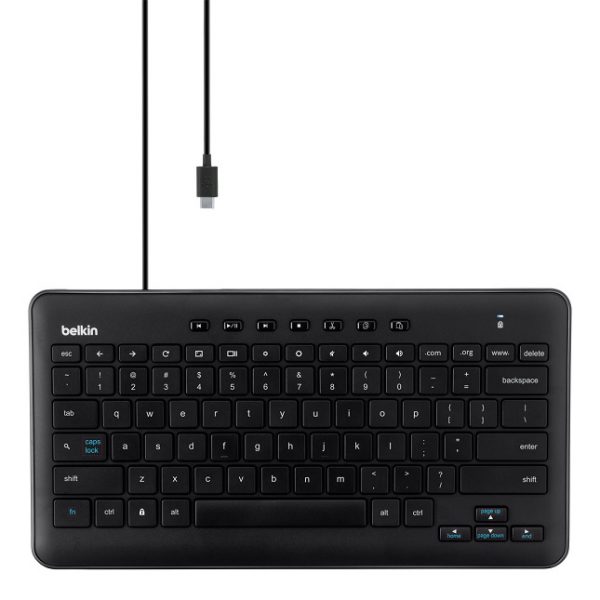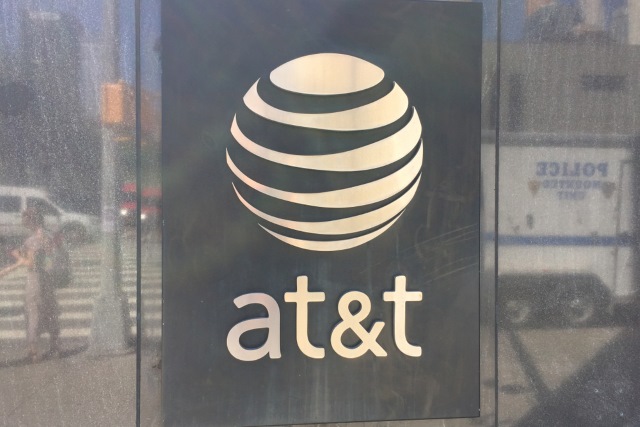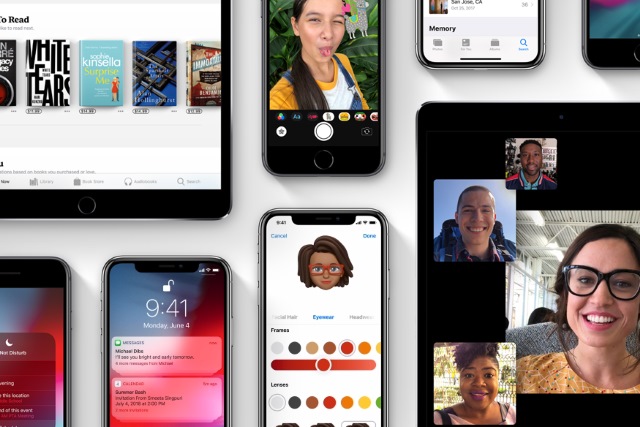
Google Home learns Spanish
Do you know what the official language of the United States is? The answer may surprise you. If you said "English," you'd be quite wrong. Actually, it's a trick question -- there is no official language of the USA. That's why it's particularly ignorant to get mad at immigrants for not speaking English. Hell, getting mad at people for speaking their native language would be abhorrent even if English was the official language.
With all of that said, a lot of technology -- such as voice assistants -- are designed for English speakers. Today, Google bucks that trend by announcing its Home assistant is leaning a new language -- Spanish.

Cisco Talos releases free decryptor for Thanatos ransomware -- ThanatosDecryptor
Getting hit by a ransomware attack is bad enough; it means that your files have been encrypted and you'll be asked to pay a fee in a cryptocurrency such as Bitcoin or Ethereum to unlock them. The problem is that paying the ransom is in no way a guarantee that your files will be decrypted -- the ransomware was created by criminals, after all.
If you've been struck by the Thanatos ransomware, however, there's good news from Cisco Talos. The company has analyzed the malware and developed a free decryption tool that will enable you to get your files back without having to part with any money.

New portal offers greater visibility into security gaps
It can be difficult for security teams to identify the weak spots in their organization's controls that put the security of the business at risk.
Managed security services provider Proficio is addressing this by launching a new version of its ProView Plus consumer portal that includes ThreatInsight risk scoring.

Belkin announces two USB-C keyboards for Chrome OS tablets
Tablets running Chrome OS are actually a thing now, as the Chromebook Tab 10 shows us. While that device is mostly aimed at education, it's only a matter of time before companies offer similar devices for business and personal use too. Since Chrome OS can run Android apps now, some people expect it to replace Android on tablets in the future. I'm not yet sold on that concept -- I still prefer Android running Chrome rather than Chrome running Android, but I'll keep an open mind.
The biggest problem with Chrome OS tablets -- especially for education -- is the lack of a physical keyboard. The Chromebook Tab 10, for instance, is just a tablet -- it does not come with a detachable keyboard. Well, Belkin aims to solve this with the all-new Wired Tablet Keyboard with Stand. As the name implies, it is a USB-C keyboard that props up the tablet for a laptop-like typing experience. In addition, the company unveils a similar keyboard without the stand. That product will work with tablets too, although it is probably better suited for a USB-C enabled Chromebook (when connected to a monitor as a desktop), Chromebase, or Chromebox.

Amazon Kindle now supports Arabic language books
Amazon’s Kindle hardware and associated online ebook store have revolutionized the reading experience. While some folks are scared of change, and desperately clutch their paper books, the future is clearly digital. Quite frankly, it’s wasteful to produce paper books. Not to mention, they take up too much room in a home.
Surprisingly, Kindle does not support the Arabic language. Today this changes, however, as Amazon launches more than 12,000 ebooks in that language.

SMBs are underprepared for cyberattacks
No business is immune from cyber attack, and smaller companies are often targeted as they lack the resources to put into first class protection.
A new survey by cybersecurity company Webroot of 600 IT decision makers (ITDMs) at small- to medium-sized businesses, finds that the attacks organizations believed themselves to be most susceptible to in 2017 are rapidly shifting in 2018, while businesses still feel underprepared.

T-Mobile is ready to launch FamilyMode to help parents monitor and control internet and device usage
Parents have concerns about not only how long their children spend online, but also what they are using various connected devices for. In just a few days' time, T-Mobile is launching its answer to the problem: FamilyMode.
This is a service that makes it possible to keep an eye on how long devices are being used for, and to monitor internet usage. FamilyMode uses a hardware base station and a mobile app (available for iOS and Android) to give parents monitoring and control over devices connected via either Wi-Fi or cellular.

Report: AT&T is helping the NSA with surveillance using secret buildings throughout the US
A report published by the Intercept alleges that AT&T has eight buildings across the US which are used to collaborate on surveillance with the NSA.
Found in Atlanta, Chicago, Dallas, Los Angeles, New York City, San Francisco, Seattle, and Washington, DC, these "peering" facilities are home to networking equipment through which a lot of US and global internet traffic is routed. The Intercept says that there is a lot of evidence to suggest that "the buildings are central to an NSA spying initiative that has for years monitored billions of emails, phone calls, and online chats passing across US territory".

Free benchmarking tool helps developers understand their apps
The performance of an app can have a big impact on how users see the business behind it. For developers therefore it's important to understand how their app will work in the real world.
To help with this, mobile analytics specialist Adjust is launching a benchmarking tool that will enable companies to understand how well their app is performing across markets and platforms.

Consumers don't fully trust digital assistants
Given recent scares about digital assistants recording conversations, it's perhaps not surprising that levels of trust in these devices are not high.
The latest State of Digital Lifestyles survey from Limelight Networks reveals that adoption of digital assistants is highest in the US where 35 percent of consumers currently own one, however, these consumers still have major trust issues with the devices.

Wi-Fi Alliance starts to certify WPA3 devices
The rise in popularity of smart devices in the home -- coupled with our continuing love of laptops, tablets and phones -- means that we're more reliant on wireless networks than ever before. But the security we rely on to keep things safe is at least 14 years old, if not older (the widely used WPA2 started life back in 2004).
Clearly, it's time for a security upgrade, and to this end, the Wi-Fi Alliance has just started certifying devices that support WPA3 -- the predictably-named successor to WPA2. This latest security protocol includes a number of important enhancements, and is available in two varieties: WPA3-Personal for the average home user, and WPA3-Enterprise for environments that work with sensitive data and require even greater security.

Apple releases the first public beta of iOS 12
If you're keen to try out the next version of iOS without risking the developer preview, you're in luck -- Apple has just released the first public beta of iOS 12, and it's freely available for anyone who fancies it to download.
Apple has already revealed quite a bit about the latest version of its mobile operating system, and at WWDC it focused on the performance enhancements on offer. But iOS 12 is about much more than this. There are also updates to Siri, key apps, ARKit 2, Animoji, Memoji and much more. Read on to find out how to get the beta version of iOS 12 on your iPhone or iPad.

Firefox Quantum 61 tweaks user interface, boosts performance (again)
Mozilla has released Firefox Quantum 61.0 for desktop, along with Firefox for Android 61.0. The new release sells itself on major performance improvements, security updates and some user interface changes and tweaks. Also improved is the bookmark sync function and access to search engines.
Performance enhancements are numerous in Firefox 61: first, there are updates to Quantum’s CSS support to speed up page rendering, which apply to both Android and desktop users.

AVerMedia launches Live Gamer 4K and Live Gamer ULTRA capture cards
Video game streaming on platforms like Twitch and Mixer is huge nowadays. Hell, it isn't even just a hobby -- some of these players are making serious money by streaming themselves playing popular games online. Of course, it isn't just about gaming -- these content creators also offer intriguing personalities.
Streaming PC games can be quite easy, but what about console gaming? For that, your best bet is to leverage a capture card -- a device that connects the video-out from your console to your PC. Today, AVerMedia launches two such capture cards, and both support 4K -- perfect for PS4 Pro or Xbox One X. Technically only one is a card -- the Live Gamer 4K, which connects using PCIe 4x. The other, called Live Gamer ULTRA, is a USB-C box.

Microsoft to finally begin selling its ridiculous Surface Connect to USB-C Adapter this week
I'm a big fan of some Surface hardware. Microsoft's own laptops and tablets are often well-made and very elegant. Quite frankly, if you want a Windows 10 PC, the Surface Laptop is a great pick. The Surface Pro is a solid choice too, although it can be difficult to use in a lap -- a non-starter for many. The Surface Book series and Surface Studio are decent choices too, albeit pricey.
Unfortunately, while the latest Surface Pro and Surface Laptop computers are rather great, they have one huge issue -- lack of USB-C. It is mind-boggling that Microsoft omitted this port, but OK, what's done is done. Last year the company promised a USB-C dongle would be released eventually, and it will finally become available this week. The problem? It looks like a clunky joke.
